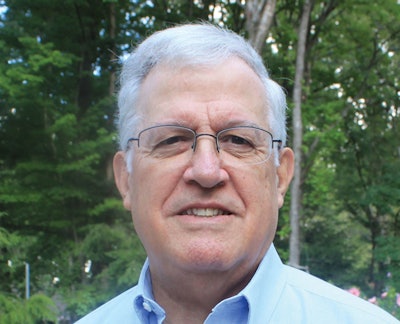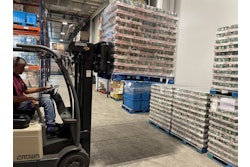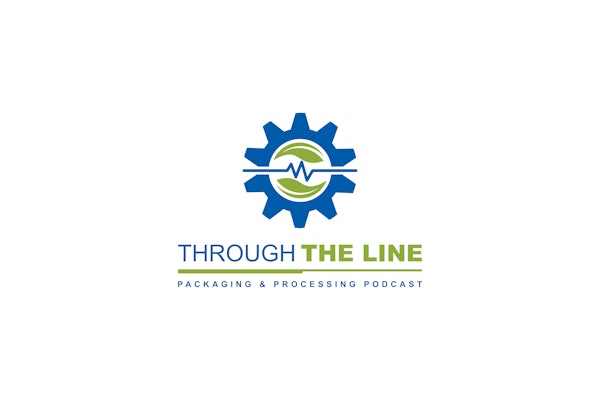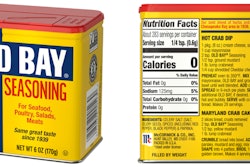“What this country needs is a really good five-cent cigar,” quipped Thomas Riley Marshall, the now mostly forgotten 28th Vice President of the United States, 100 or so years ago. His tongue-in-cheek complaint was about what many considered to be an overpriced item that, in fact, would have been impossible to profitably produce at such a low price, even in that era. I don’t know any adults who’re looking for a good nickel smoke of tobacco today.
Earlier this year, I considered making this column a call for the establishment of a new sustainability collaborative devoted exclusively to the public, proactive collection, dissemination, and support of technologies and techniques advancing the goals of resource conservation and renewal. I’ve changed my mind about that.
Processing and packaging managers continue to endure environmental criticism that largely springs from a lack of understanding of what motivates them: The desire to satisfy profitably the needs of their processing and packaging customers. “Profitably” is the most important word in that statement. Profits are the vital underpinning of any business enterprise that strives to be sustainable. Our critics seem to resent business for–as they might put it–chasing after profits, as though making enough to reinvest in the enterprise wasn’t the lifeblood of any business venture.
I still think we don’t need a nickel puff of tobacco. But I’ve changed my mind about the need for a new sustainability collaborative. Sustainability is embedded in the DNA of many packaging and processing organizations and its definitions are manifold.
As even the short list of sustainability collaboratives indicates, we’ve got plenty of environmental consortia. What we do need is active engagement on the part of packagers and their suppliers in one or more sustainably focused enterprises like those listed below.
The Ellen MacArthur Foundation (EMF). More than 1,000 organizations have already signed onto the EMF’s Plastic Pact Network, a global initiative to address plastic waste and pollution. Focus: “To implement solutions towards a circular economy for plastic” tailored to each geography. Among the group’s goals:
• Eliminate unnecessary and problematic plastic packaging through redesign and innovation
• Move from single use to reuse
• Ensure all plastic packaging is reusable, recyclable, or compostable
• Increase the reuse, collection, and recycling or composting of plastic packaging
• Increase recycled content in plastic packaging
EMF’s Global Commitment 2022 progress report acknowledges that the target of 100% reusable, recyclable, or compostable plastic packaging (by 2025) “will almost certainly be missed by most organizations, with flexible packaging and lack of infrastructure being the main barrier.”
MBOLD coalition. This initiative of the Greater Minneapolis-St. Paul Economic Development Partnership (as appeared on the cover of the November issue of PW) could serve as an organizational template to address difficult packaging sustainability challenges. Its focus is on flexible packaging films. MBOLD’s goal is to “create and nurture a circular economy for flexible packaging films.” Myplas USA, Inc., a film recycler from Capetown, South Africa at the hub in the MBOLD recycling effort, is building a plant in Rogers, Minn. and expects it to be operational in the summer of 2023. Charter Next Generation will purchase recycled resin from Myplas for conversion into food, industrial, and healthcare films. MBOLD members Cargill, General Mills, Schwan’s Company, Land O’Lakes, and the University of Minnesota will evaluate potential product applications using recycled resin with Charter Next Generation and explore opportunities to direct film waste to the Myplas plant when it’s operational.
The Sustainable Network. This organization says it intends to accelerate the healing of our planet and society through harnessing the innovation of entrepreneurs.
The Upcycled Food Association (UFP). A non-profit collaborative of more than 250 food businesses with a sustainability message for food processors: “Upcycling food waste into new ingredients presents an opportunity to create additional revenue streams.” Focus: Transforming food waste into human-consumable food. The UFP defines upcycled foods as “ingredients that otherwise would not have gone to human consumption, are procured and produced using verifiable supply chains, and have a positive impact on the environment.”
NextWave Plastics. This small but growing consortium of multinational technology and consumer brands is “gathering in the spirit of collaboration and transparency to rapidly decrease the volume of plastic litter entering the ocean.” Focus: Collecting and using marine plastic waste to produce new products.
The Global Plastic Action Partnership (GPAP). A coalition with about 400 corporate participants that was organized and launched at the 2018 World Economic Forum’s Sustainable Development Impact Summit. Focus: Translating commitments into concrete action to reduce plastic pollution and waste.
If there is something missing in these collaborations, it is a broader exploration of the positive environmental impacts of plastic packaging as well as the impacts, both positive and negative, of non-plastic packaging, and the systems to produce, use and reuse, and inevitably, dispose of them. The “circular economy,” which many of the sustainability coalitions envision, surely has room for reusable, refillable containers of paper, metal, and glass, as well as plastics.
Ben Miyares, Packaging Sherpa, is a packaging market and technology analyst and is president of The Packaging Management Institute, Inc. He can be reached at [email protected].


























